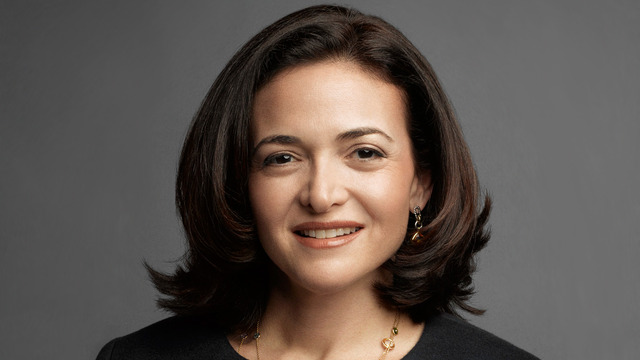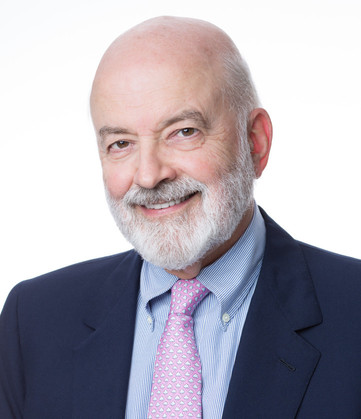Indeed, business acumen is only part of the formula for the Class of 2017. Wake Forest’s Jake Teitelbaum hopes to emulate Zappos CEO’s Tony Hsieh’s “at the end of the day, it’s just life” mantra, a philosophy that prizes fun and work-life integration above all else. In contrast, Brigham Young University’s Priscilla Hobbs trumpets Intel CEO Brian Krzanich. Who spearheaded the firm’s transformation from a company that powers PCs to one that supports the cloud and the “internet of things.” Despite highlighting Krzanich’s innovative spirit, her biggest compliment to him is summed up in one word: personable. “He doesn’t let his position get to his head,” she observes. “He sits at a cubicle just like every other Intel employee. If I every hold a leadership position, I hope to be as forward thinking as he has been.”
LEANING IN AND GIVING BACK
In a celebrity-driven culture, people are naturally attracted to those with name recognition. The ‘Best & Brightest’ are no different. Facebook COO Sheryl Sandberg is one rock star executive who has captured the imagination and respect of the 2017 class. Lehigh University’s Kelly Mayid appreciates Sandberg’s efforts to expose the glass ceiling and advocate for gender equality in the workplace and beyond, For the University of Texas’ Katherine Magee, Sandberg has been an assuring voice that urges her to stand up and be counted. “I read her book, Lean In, during my freshman year of college and it inspired me to speak up, believe in myself, and (perhaps most importantly) to do what I can to help other women do the same. If I ever manage to achieve the same business success that she has, I hope to similarly use it as a platform to inspire positive social change.”
Bill Gates is another leader that this year’s graduates revered more for what he has done at the Gates Foundation than for his enviable track record at Microsoft. James Madison’s Michael Habib admires his “passion for philanthropy” and commitment to helping the less fortunate. By the same token, the University of Washington’s Brendon Krall is encouraged by the arc that Gates’ life has followed. “I respect that his work transcends money and he has shifted his focus to improving health outcomes across the globe. I truly admire that he was able to create a company that adds immense value and then he dedicated his proceeds to meaningful causes that reduce inequality across the globe.”
It isn’t just living business leaders who are galvanizing business majors to pursue the greater good. Carnegie Mellon’s Benjamin Chang says his favorite executive is “definitely Andrew Carnegie.” Despite his prominence peaking around the turn of the century, Carnegie’s example is as in tune with Millennial values as any breathing business leader. “His story is a true rags-to-riches one and his respect and love for his parents is very admirable,” Change shares. “His words “my heart is in the work” is a motto that resonates with me greatly. A true visionary and philanthropist, Carnegie is the perfect man I wish to become.”
Of course, the big names don’t always leave the biggest footprint. Someday, after Purdue University’s Madison Long earns her MBA and launches a billion dollar enterprise, the world will appreciate how her father, Mark Long, laid the groundwork for her success. “He has always had an entrepreneurial spirit,” she reminisces. “When I was young I saw him leave his traditional corporate position to pursue small business endeavors in the health care space. Seeing him own various companies that focus on the welfare of others really inspires me to commit my life to my passions while striving for success.”
LEADERS BE WARNED: SOMEONE IS ALWAYS WATCHING
For business leaders hoping to appeal to Gen-Y talent, one place to start is through creating a culture of conscientious capitalism. TOMS CEO Blake Mycoskie has done exactly that. His company is basically a hybrid: a for-profit shoe sales operation that’s intertwined with a social enterprise side. The latter applies a “One for One” model, where TOMS donates a pair of shoes for every pair sold. Thus far, the company has given away over 60 million pairs of shoes in 70 underdeveloped countries. This “benevolent” approach hasn’t gone unnoticed by the Class of 2017. “I have a profound respect for his commitment to encouraging businesses to use their profits and company assets responsibly in making charitable efforts,” says Lehigh University’s John Larson. “As TOMS has already proven, there are both intangible and real returns to such efforts.”
Mycoskie isn’t alone in using business as a vehicle to give back. Take Whole Foods CEO John Mackey. His grocery chain began with the goal of marketing natural foods that promoted healthy lifestyles. Since then, it has evolved into an agent for corporate social responsibility, being the first chain to eliminate plastic bags and building a mentorship program that is the envy of any industry. “Mackey’s views beg the question of how companies should relate to the environments within which they operate, and Whole Foods is truly a stalwart operator in the realm of sustainability,” writes the University of Texas’ Humza Tariq. “He’s not afraid to speak up on what he believes in, and I think his positive message can, and will continue to, affect the way in which companies do business.”
Stewardship doesn’t just end with social and environmental causes for the ‘Best & Brightest’ business majors. The Class of 2017 is also seeking leaders who can cultivate cultures that run off integrity, innovation, and goodwill. One executive who doesn’t hide his passion is Joe Perella, founder of Perella Weinberg Partners. During his two years as a summer intern at the firm, Emory University’s Casey Rhode was struck by Perella’s example — and how it set the tone top-to-bottom. “At 75 years of age, he still comes into the office almost every day, socializes with employees, and takes the time to get to know everyone on a personal level – even down to the interns,” Rhode observes. “Mr. Perella emphasizes values and culture and founded a company that emulates his ideals from the c-suite to the junior analysts, creating a collegial and rewarding work environment.”
That’s critical because the first lesson for any leader is this: Someone is always watching. Chances are, they are still deciding whether that leader is worth following. Last summer, that someone was the University of Pittsburgh’s Everett Green, an Ernst & Young intern. For the International Intern Conference, he was flown to Orlando to see EY CEO Mark Weinberger speak. It wasn’t Weinberger’s speech that won him over. Instead, it was what happened afterwards that reflected how Weinberger’s words and values were one-and-the-same. “During his speaking time,” Green recalls, “he spoke about his own family, and how he treats his employees as an extension of this. The reason I believe this was not just “talk” was because he could be seen walking around the crowd of thousands of interns laughing, making jokes, taking selfies, and enjoying himself. It is this happiness and enjoyment, as opposed to “hardball” leadership, that I appreciate and admire, and I want to be like that one day.”
These are just sampling of the business leaders cited by this year’s ‘Best & Brightest’ business graduates. From Jamie Dimon to Yvon Chounard, the next pages include some of the other leaders who’ve earned the Class of 2017’s admiration.














Questions about this article? Email us or leave a comment below.